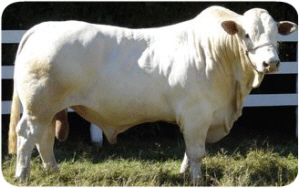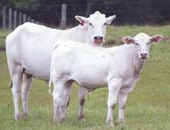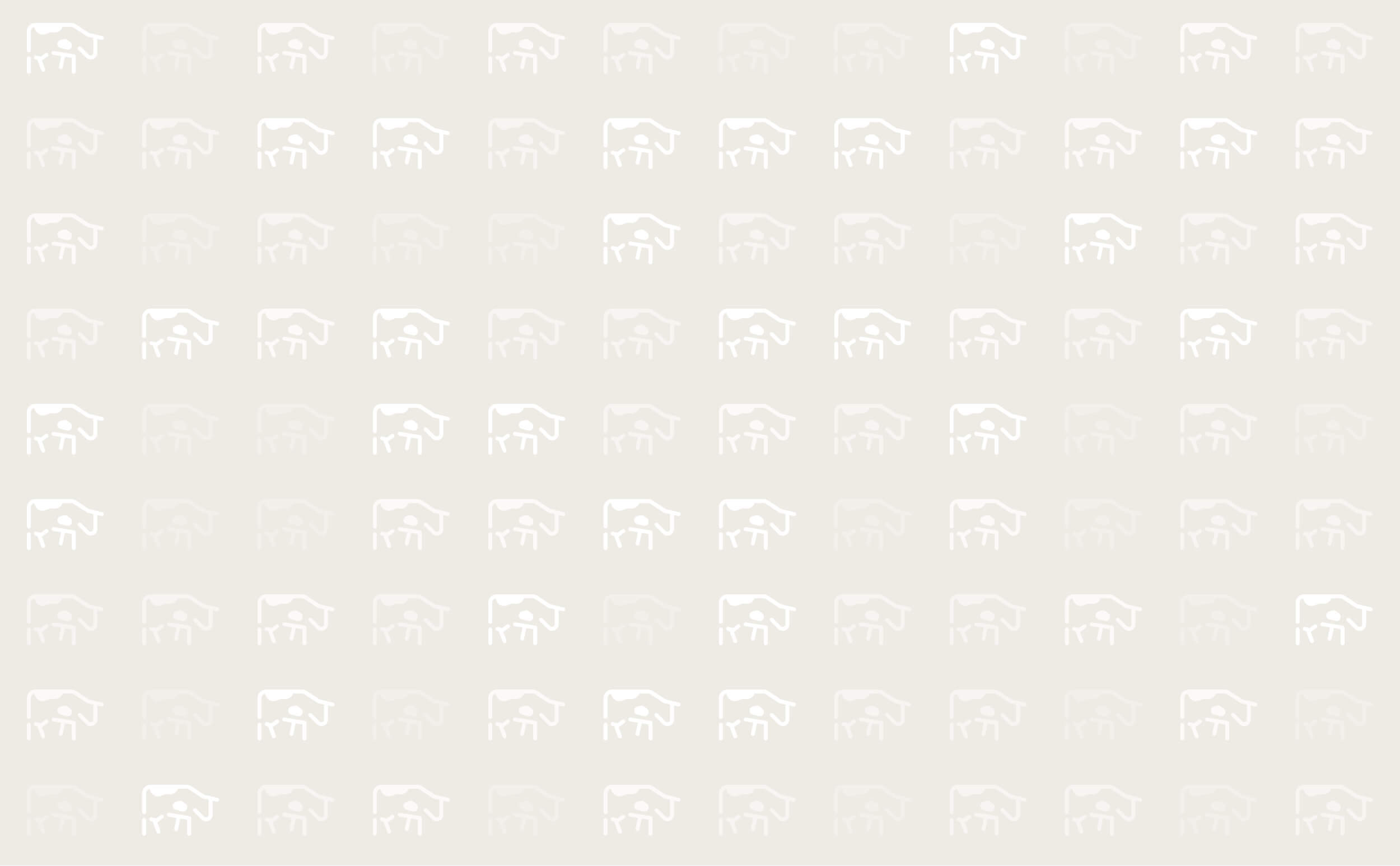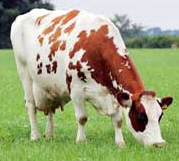



Canchim
History
The Canchim originated in Brazil around 1922 to improve Brazilian beef cattle breeding.In the last century Zebu cattle (Bos Indicus) were introduced to Brazil which were extensively crossbred with herds of native cattle.
 Photo courtesy of Associação Brasileira de Criadores de Bovinos da Raça Canchim, www.canchim.com.br |
The European breeds could not simply replace the original cattle as they could not perform as they do in temperate climates in Brazil plus factors such as parasites and disease would affect them.
The European breed used in the formation of Canchim cattle was Charolais. According to research at the time, Charolais cattle were chosen because of its high yield and display of pre-requisites for adaption to Central Brazil.
In 1922 the Ministry of Agriculture imported Charolais cattle to the State of Goias, where they remained till 1936, when they were transferred to Sao Carlos in the State of Sao Paulo, today the Canchim Farm of the Government Research Station, Embrapa. From this herd originated the dams and sires used in the program of crossbreeding.
The main zebu breed which contributed to the formation of the Canchim was the Indobrazil, although Guzera and Nelore where also used. Preference was given to the Indobrazil breed, due to the ease of obtaining large herds at reasonable prices, which would have been difficult with Gir, Nelore and Guzera. The alternative crossbreeding programs initialised in 1940 by Dr. Antonio Teixeira Viana had the objective of obtaining first, crossbreeds 5/8 Charolais and 3/8 Zebu and second, 3/8 Charolais x 5/8 Zebu, to evaluate which of the two schemes was the most indicative.
The data collected during years of work, permitted an evaluation of the various degrees of crossbreeding. The conclusion was that the 5/8 Charolais and 3/8 Zebu was the most suitable, presenting an excellent frame for meat, precocity, resistance to heat and parasites and a uniform coat.
The first crossbreed animals with the degree of blood 5/8 Charolais and 3/8 Zebu were born in 1953, thus was born a new type of beef cattle for Central Brazil- the name Canchim. The name was derived from the name of a tree very common in the region where the breed was developed.
It was not until 1971 that the Brazilian Association of Canchim Cattle Breeders (ABCCAN) was formed, and on the 11th November 1972 the Herd Book was initiated. On the 18th May 1983 the Ministry of Agriculture, recognised Canchim type cattle as a Breed.
Today the Nelore breed totally dominates the Zebu breed in the formation of new bloodlines for the Canchim. American and French Charolais semen from carefully selected bulls is also used and recommended by the ABCCAN.
Characteristics
 Photo courtesy of Associação Brasileira de Criadores de Bovinos da Raça Canchim, www.canchim.com.br |
It is muscular in conformation very similar to the Charolais, except it has a small hump obviously retained from its Zebu/Nelore roots.
This breed was created for excellent beefing qualities, hardiness in hotter climates, fertility and fast growing calves.
Statistics
Comparative
Distribution
This breed is mainly produced in South America.References (the above information was cited from the following sites)
www.canchim.com.br


